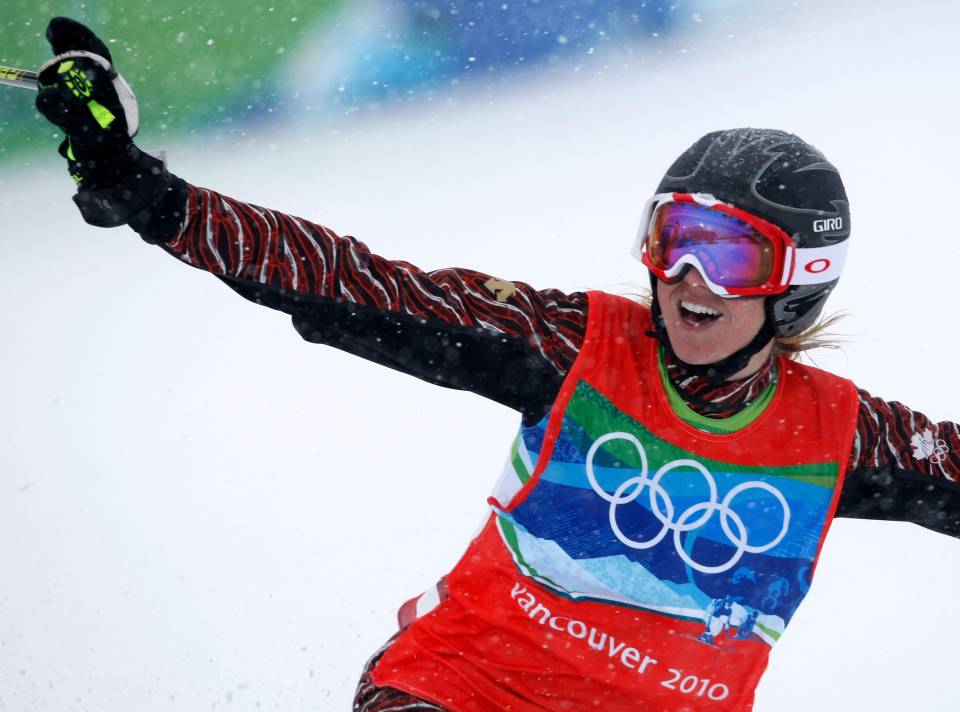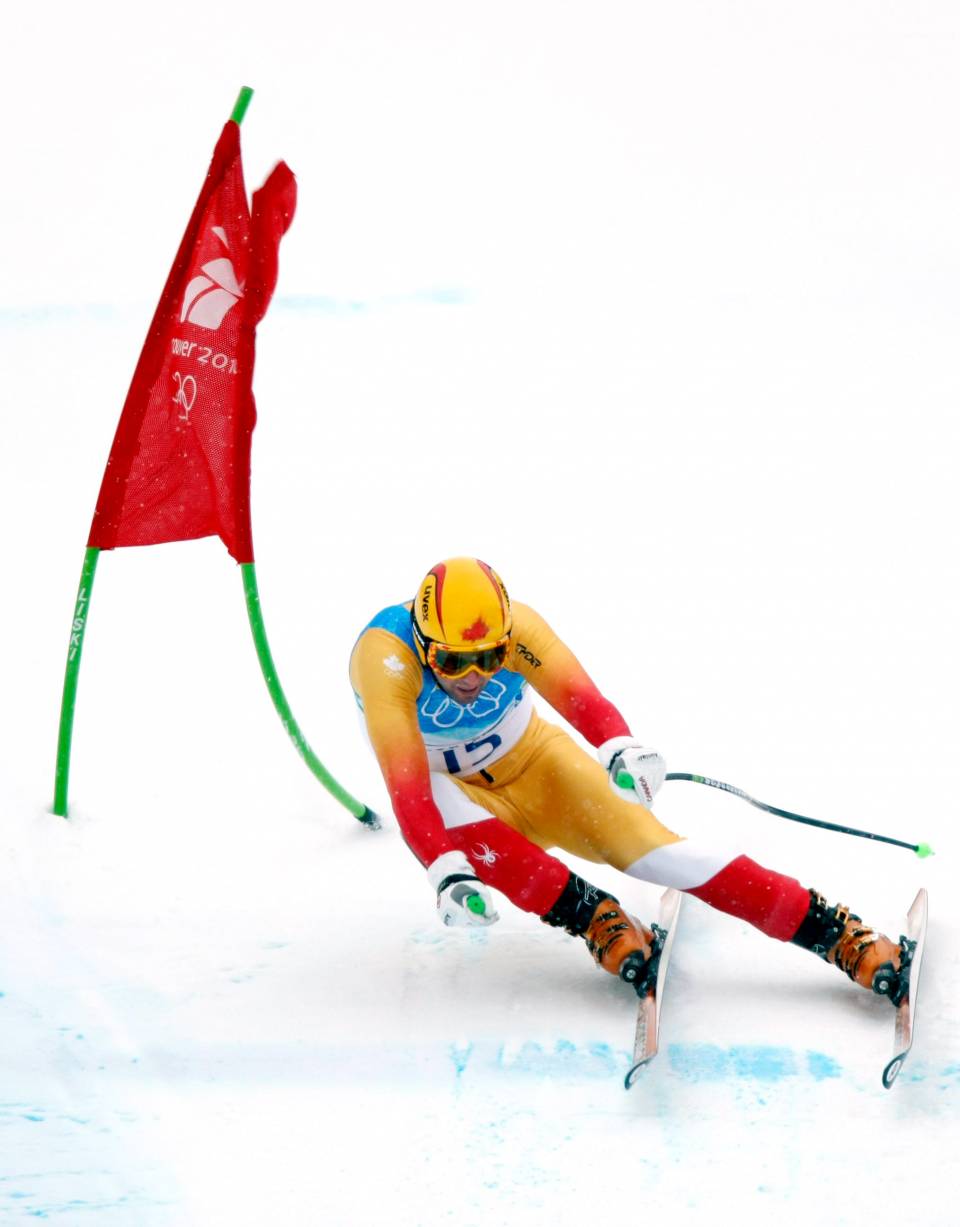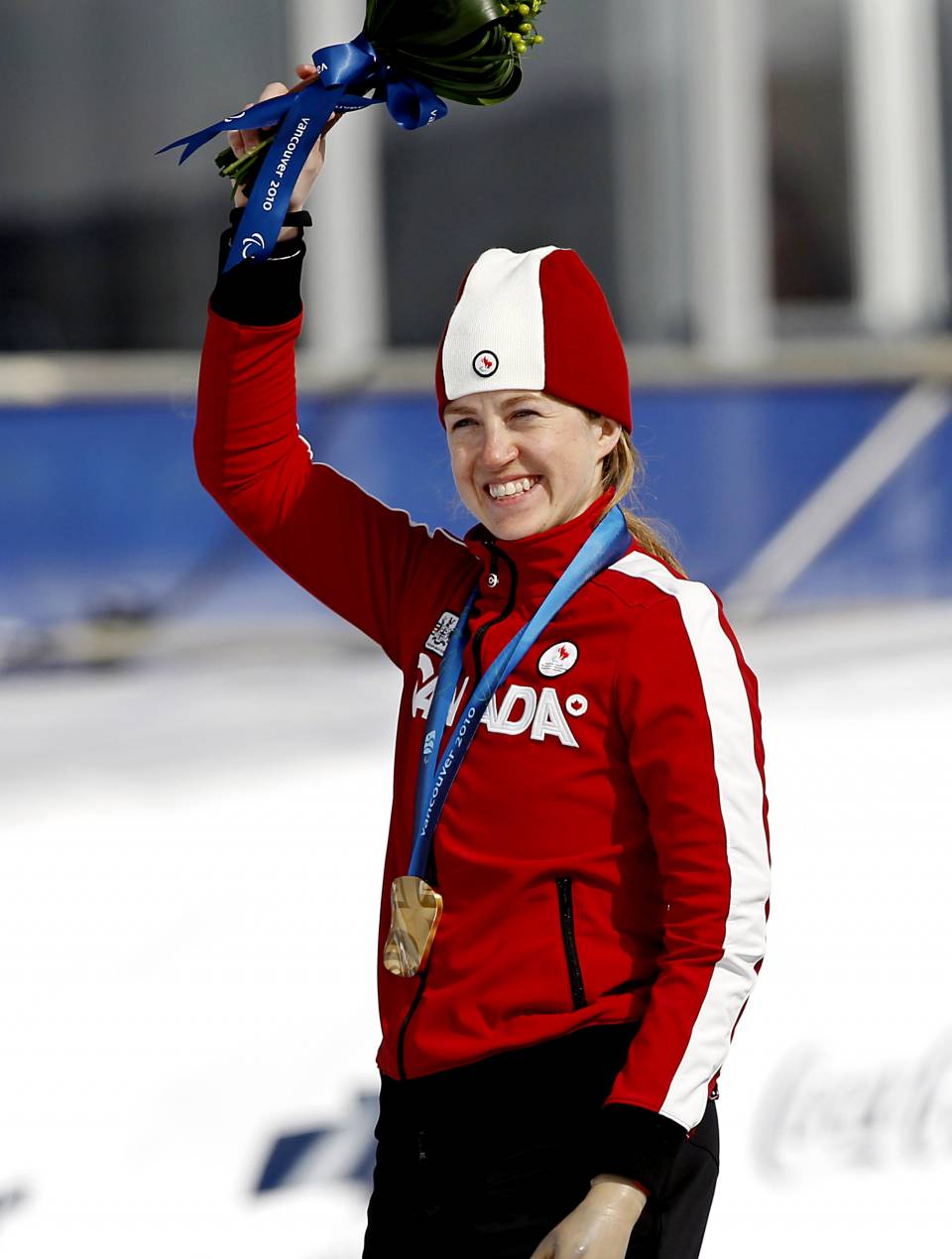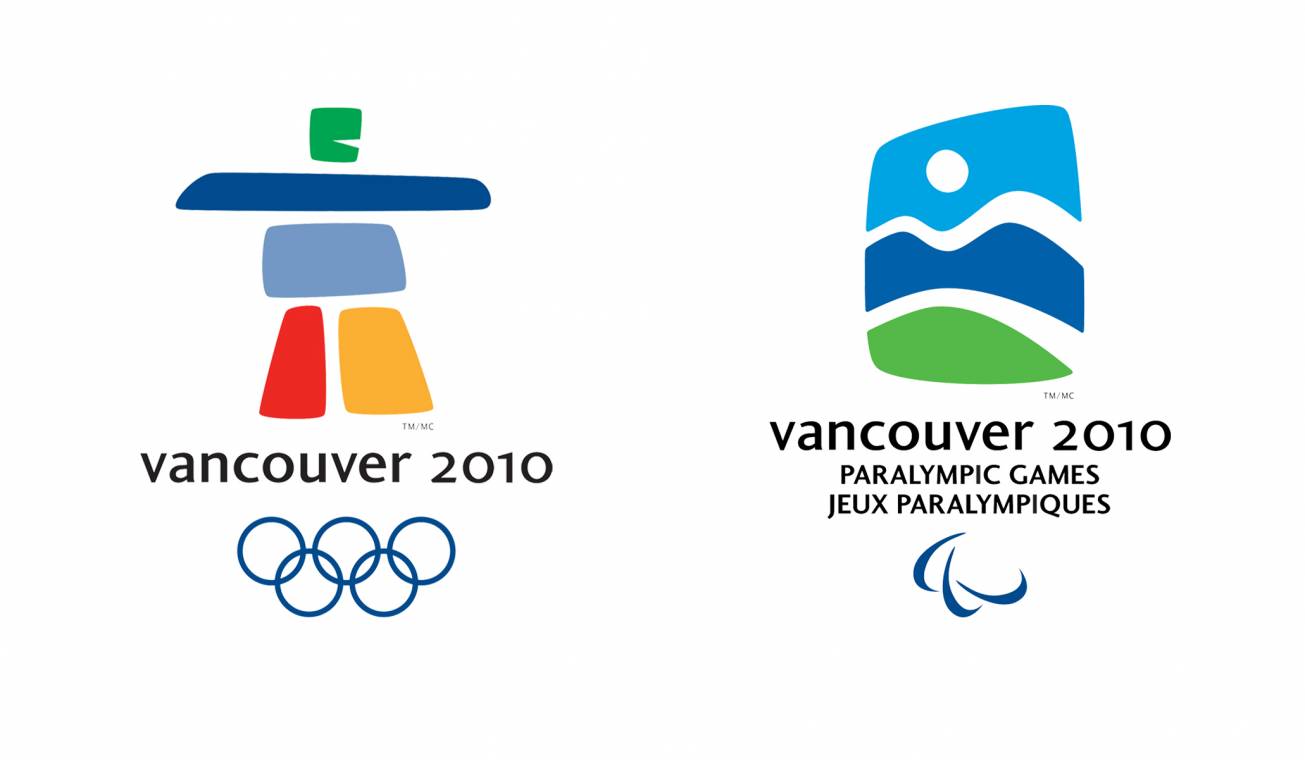Photo Credit: Teddy Katz (Contributor)
From ALPINE CANADA ALPIN NEWS
Marielle Thompson was in grade 12 when the Vancouver 2010 Olympics began on Feb. 12, 2010 and as a Whistler resident she was off school and couldn’t get enough of the atmosphere. Thompson’s own Olympic dreams began when she saw Ashleigh McIvor, who was also from Whistler, win the very first gold medal for ski cross.

Photo Credit: GEPA
“I grew up watching Ashleigh ski. I’ve known her my whole life and when someone from such a tiny little town like Whistler wins the Olympics on such a big stage, you’re like oh…maybe I could do that too.”
Thompson, of course, has become one of the most successful Ski Cross racers in the world, winning three Crystal Globes, a gold medal at the 2014 Winter Olympics in Sochi and the 2019 World Championship.
She says athletes continue to benefit from the legacy of the 2010 Olympics and the infrastructure built for those games, including a gym where she trains in the off season.
Thompson says the area has become a winter sport haven producing some of Canada’s top lugers, bobsledders, skeleton and biathletes.
“In Sochi and PyeongChang, we had an unbelievable amount of Whistler athletes (competing for Canada) who were there.”
Manny Osborne-Paradis says when Vancouver was awarded the Olympics, it was also a defining moment in his career.
He was on the BC Ski Team and was at a crossroads when he heard the announcement the Games were coming to town.
“I was working in construction. I can remember the house and everything. It was on the radio and I took a break to go listen to see if we would get the bid.”
That day changed everything.
Overnight, there was money injected into the Canadian sport system, and Alpine Canada looked to find the next generation of athletes who could contend for medals.
The career of one of the Canadian Cowboys, as the team became known, took off from there.

Photo Credit: GEPA
Having gone to four Olympics now, Osborne-Paradis says Vancouver remains extra special.
“Vancouver did such an amazing job at placing the Olympics in the middle of their city and really making a great legacy. Even when I come into Vancouver airport now, you feel like it’s a city that hosted the Olympics.”
Osborne-Paradis says Whistler’s early settlers dreamed of having the Olympics there one day in what began as a tiny village.
“It took a couple of generations, but people had a dream of hosting the Olympics in a place that almost didn’t exist. And then it actually became a reality. It’s pretty cool. It shows a lot of our pioneering attitude in Canada.”
Other athletes on today’s roster for Alpine Canada were impacted in a big way by the Vancouver Games as well.
Ski Cross star Brady Leman broke his leg just before the 2010 Games.
“In a lot of ways watching that event, as painful as it was, also really motivated me. I knew it sucked and I had a long rehab ahead but watching the race really motivated me to get there one day.”
Leman thought about Vancouver and his other struggles when he stood on the top of the podium at the PyeongChang Olympics in 2018.
Fellow Ski Cross racer Britt Phelan, who was racing alpine at the time, was a forerunner for the slalom event at the 2010 Olympics. 18-years-old then, she couldn’t believe the crowds and the people cheering for her.
“I promised myself the next time I’d be at the Olympics was going to be me competing for real.”
She did just that in 2014, and then won a silver medal in Ski Cross at the 2018 Olympics in PyeongChang.
When the Olympics ended in 2010, it was the Canadian Paralympic team’s time to shine. They set a new Winter Games record for Canada winning 10 gold medals.

Photo Credit: GEPA
Lauren Woolstencroft won five gold on her own as the Canadian Paralympic Ski Team captured an impressive 13 medals in all on the slopes.
Woolstencroft says one of her lasting memories is how all of Canada embraced the Paralympics.
“We were on the front page of newspapers. That had never happened to me in the span of my 12-year career.”
Woolstencroft found herself getting recongized in grocery stores and in 2018, eight years after she retired, she was asked to star in a television commercial that aired during the Super Bowl.
She says that’s why she believes the Vancouver Games were a game changer in many ways.
Canada’s Para-Alpine Ski team had always been a leader but she says Vancouver 2010 elevated that to a new level.
“We shifted to a program that was very focused on performance and success. We achieved a lot of that in 2010 and I think it’s really continued when I look at the team now.”
She says Vancouver 2010 was the first Winter Parlympics held in Canada and because of the media attention, a whole new generation of young athletes watched and started dreaming of being there one day.
10-years-old at the time, 2018 Paralympic gold medallist, Mollie Jepsen’s family has a place in Whistler near the bottom of the downhill. She saw a lot of the skiing events live and then started skiing herself that winter.
“It was so cool. I was just so inspired. I can remember thinking about it so much and making it my goal. That’s the moment I got into ski racing. It really started everything for me.
That’s why 10 years on, many on the Canadian Ski Teams, past and present, will celebrate the legacy of a Games that continues to leave its mark.
